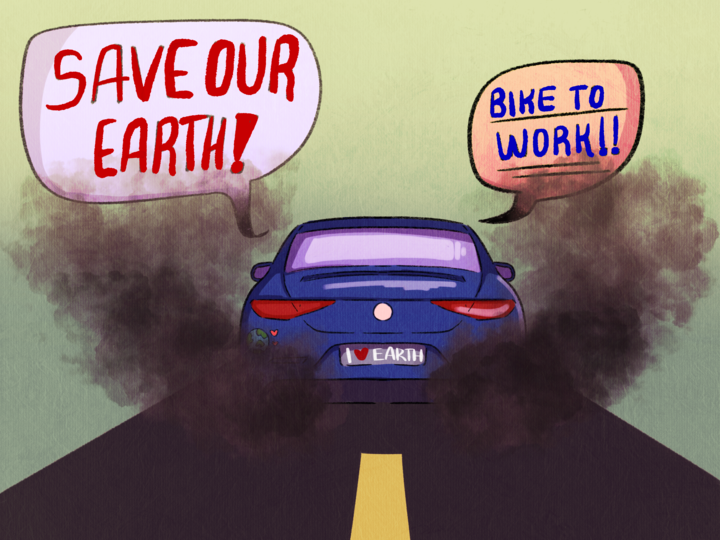Pro: Teacher/student relationships go beyond the basics
The commentators of the Arizona Daily Star’s website are raging as usual, this time over the Flagstaff Unified School District’s “”goon squads of fat police,”” as one put it.
The district plans to send letters to parents whose children are overweight, or heading in that direction. Any action after that is up to the parents.
Another commentator wondered if the district’s next step would be a call to Child Protective Services. Online comments bring out the sarcastic, the crazy and the just-can’t-be-taken-seriously in people, but the sentiment is valid: When is a teacher responsible for a student’s health?
District Superintendent Barbara Hickman says students’ weight is an “”emotional subject”” for parents who might get offended, but it needs to be addressed. An estimated 50 percent of the district’s elementary school students will be classified as or near overweight. Physicians in Flagstaff are reporting obesity-related diabetes in children as young as 4 years old.
Once again, it’s only a letter, but opponents imagine initiatives like Flagstaff’s or first lady Michelle Obama’s Let’s Move! campaign against childhood obesity create a nanny role.
They claim schools should educate children, not parent them. But a child spends five days a week developing a relationship with his teachers, and an education ought to consist of more than a report card. Teachers aren’t substitutes for parents, but they’re more than unfeeling robots reciting math formulas.
The answer to the question is that teachers should always be concerned about their students’ health because they already play a major role in children’s lives, with or without a letter home to Mommy.
— Kristina Bui is a sophomore majoring in journalism and political science.
Con: What constitutes ‘almost fat’?
Normally, I’m one of those people who online commentators refer to as part of the “”nanny liberal state.”” I think the government has a role in keeping citizens healthy, and if that means instructing them on things like obesity and good nutrition, so be it.
But the Flagstaff Unified School District’s plan to send letters to parents whose children are, or might be, or look like they could be in certain lights, overweight, crosses a line.
Schools and teachers should certainly be involved in the lives of students beyond just the classroom curriculum. To that end, schools have a responsibility to provide healthy food choices, engaging physical activities, health education and positive role models to students, especially those at risk for obesity and its related risks. Childhood obesity is an enormous problem in this country. So, should teachers and school nurses be on the lookout for children who risk developing serious health problems? Absolutely.
But that’s not what the Flagstaff school district’s plan entails. Instead, as the Daily Star article puts it, school officials could send home notes to the parents of children who are “”bordering on overweight.”” Basically, that means that if a teacher decides a student is a bit chubby and might someday be at risk of obesity, they’d have the responsibility to alert parents to that fact.
Not only does this plan sound ineffective, it might be incredibly offensive and damaging to both the parents and children involved. While some children are overweight or obese, others are just growing into their bodies. While childhood obesity is on the rise, so is the occurrence of eating disorders among the disturbingly young. It would be downright cruel for a teacher to tell a parent, who may or may not struggle with his or her own weight issues, that his or her pleasantly plump child is just a little too plump. Where is the line between “”headed toward obesity”” and “”hanging onto a bit of baby fat”” to be drawn?
Without a specific way of determining when a child is certifiably unhealthy, and scientific methodology to back that up, teachers telling parents their kids are fat has the potential to be more cruel and damaging than helpful.
— Heather Price-Wright is the opinions editor of the Daily Wildcat.








